Haenyeo – The Women Divers of Jeju-do
Written by: Nina Haskins
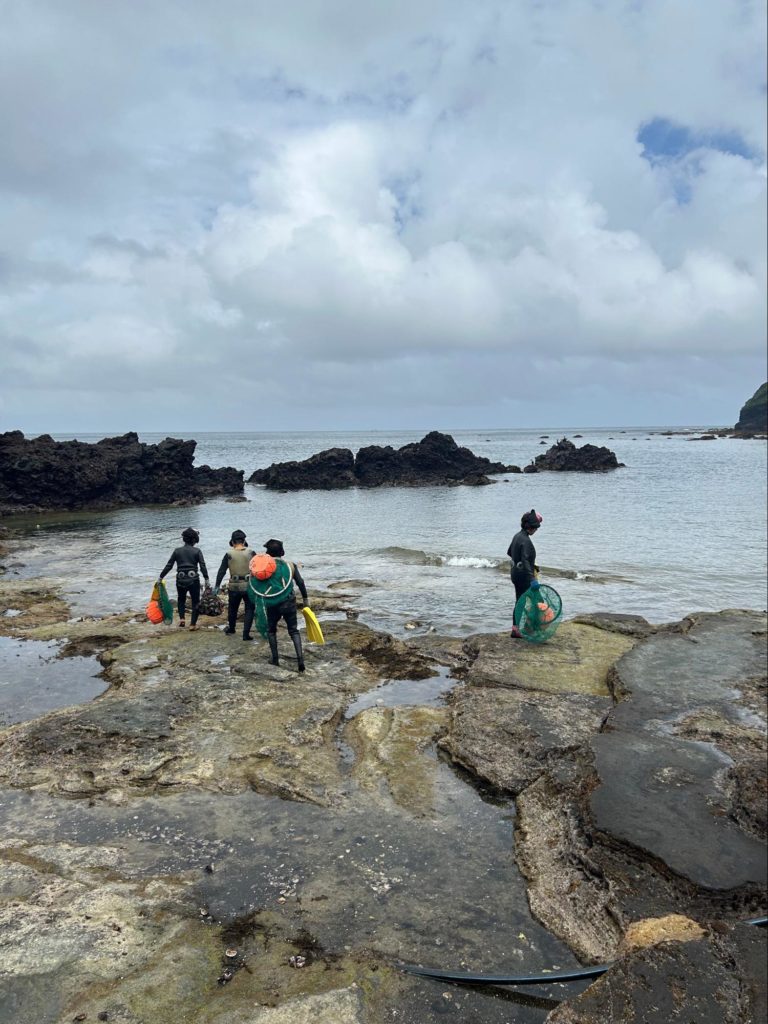
Nina Haskins/Earth Shiners
I was hiking down the side of a giant volcano, enjoying the lush greenery and smell of vegetation. I was amazed by the beauty and the view of the rest of Jeju, the volcanic island south of and belonging to South Korea. As my friends and I continued our descent, the side of the volcano became visible, revealing a cliff carved out by weathering and the ocean. Right below this massive rock are a dozen or so small orange dots. Upon closer inspection, we discovered that the orange dots were buoys; directly below, the Haenyeo (pronounced Hen-yo) was diving for abalone and sea urchins!
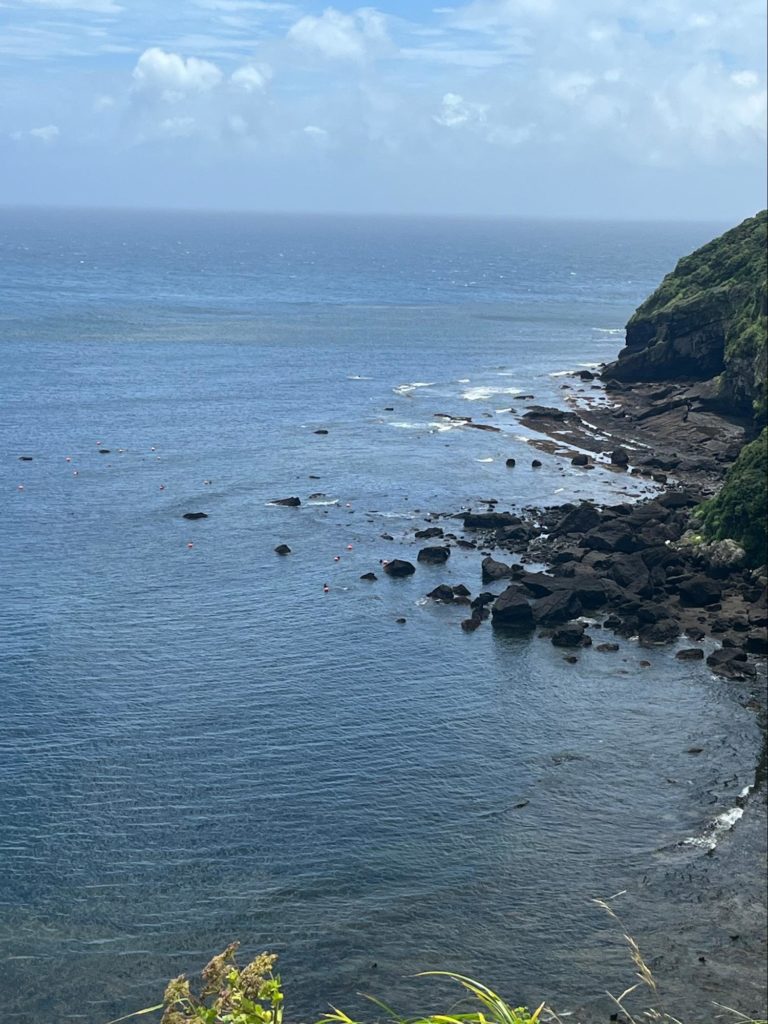
Nina Haskins/Earth Shiners
The divers dress minimally: they wear black full-body suits equipped with goggles, weights tied to their waists with a thick rubber band, and fuzzy socks under their flippers. They spend years training to dive for over 3 minutes, scraping the abalone and urchins off rocks and corals. They use their bright orange buoys to guide where they dive so as not to get too far away from the group.
Harvesting abalone (shelled sea creatures) and sea urchins is a trade the large fishing industry hasn’t threatened because nets, fortunately, miss the organisms and are instead hand-scraped off rocks and corals. It is sustainable harvesting because the divers can easily count and control the amount they collect. They never harvest in the same area for too long. Based on the waves and weather patterns, they will move along the coast near the cove and volcano to different harvesting sites.
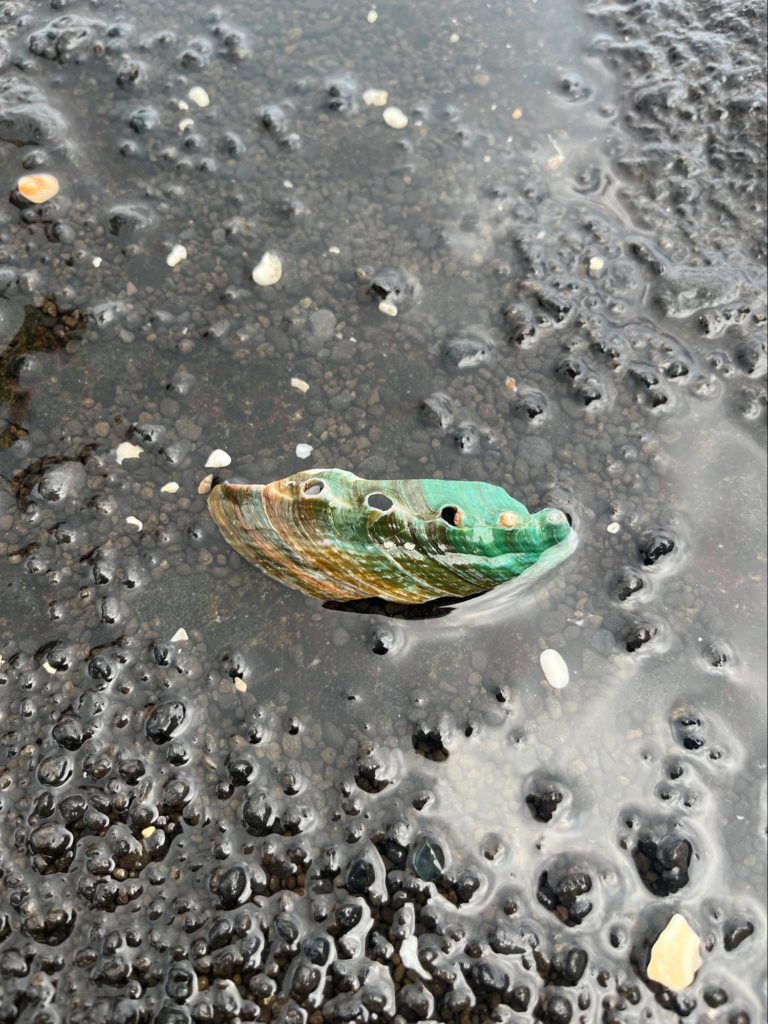
Nina Haskins/Earth Shiners
Their work is also beneficial for the ocean because an overpopulation of urchins can threaten the habitats of other marine life by eating through kelp forests on the ocean floor. Sea kelp also helps capture and store carbon dioxide, essential in our fight against global warming. Furthermore, to reinvest in their ocean and business, they return the abalone shells to the water so other microorganisms can reattach to their exteriors. This circularity supports regrowth in the sea.
Amazingly, this clan of sustainable harvesters averages ages of 50-60 and even older! At this age, they dive in groups for 5-hour shifts at a time. When they return to shore, most divers haul a massive net of urchins and abalone hundreds of stairs up the mountain for selling. A portion also goes to a humble restaurant on the beach to be eaten fresh.
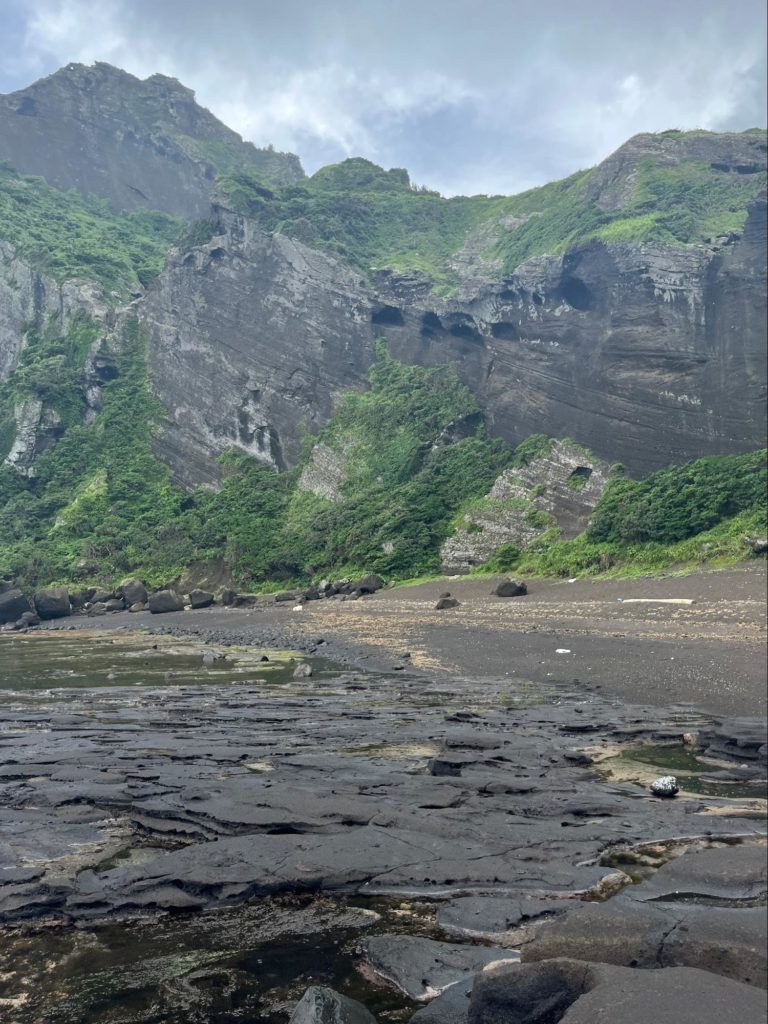
Nina Haskins/Earth Shiners
The Haenyeos of Jeju work sustainably in this bay, not knowing that they are deeply admired worldwide for their traditional and challenging work. What is a respected, humble tradition on the island of Jeju is another beautiful example of how indigenous practices set the best standards of how we can coexist with the environment while still enjoying our favorite traditional cuisines.
Thanks for reading!
Copyright 2023 Earth Shiners Creative LLC
Earthshiners@earthshinersmagazine.com
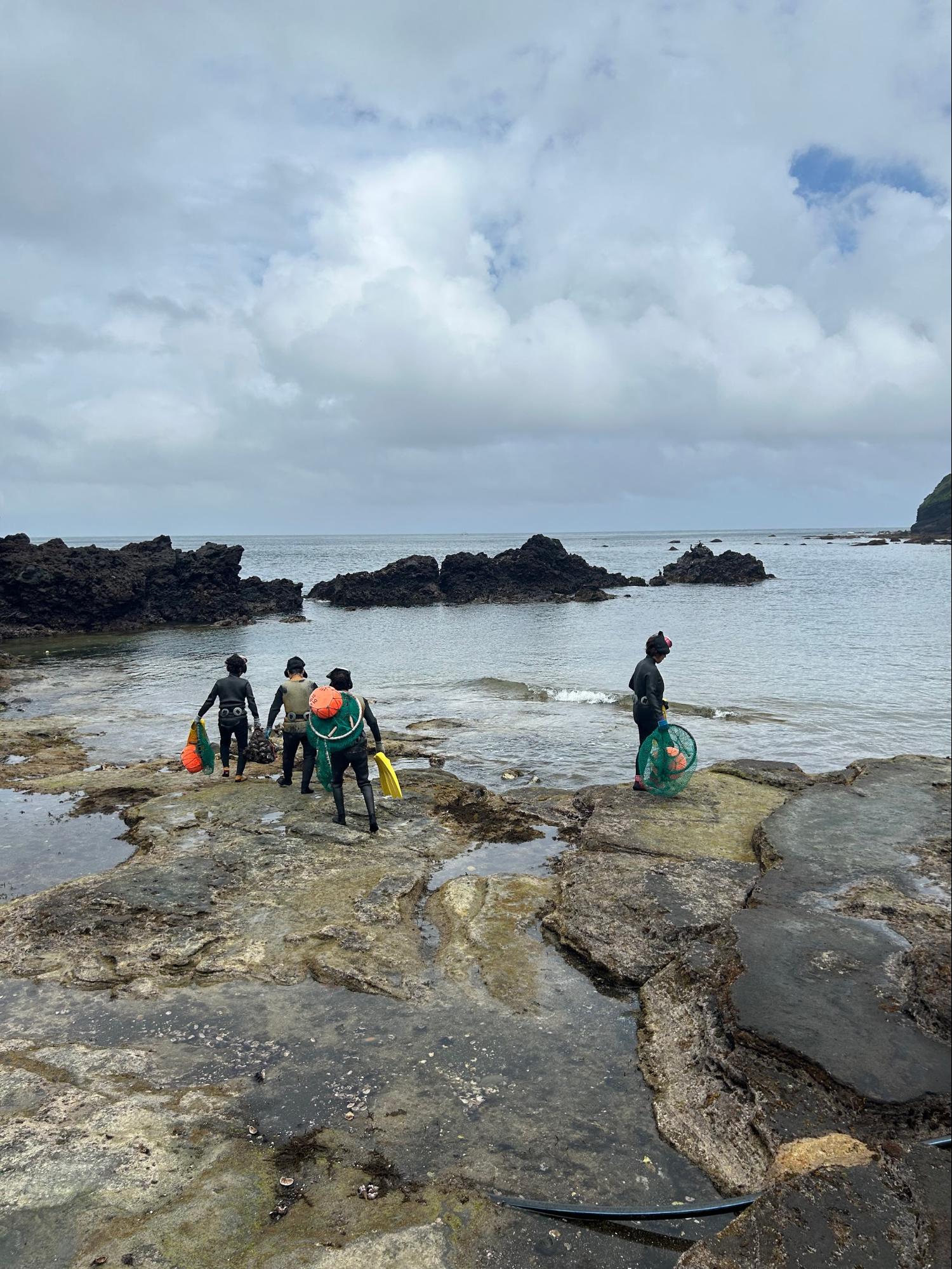
Leave a Reply